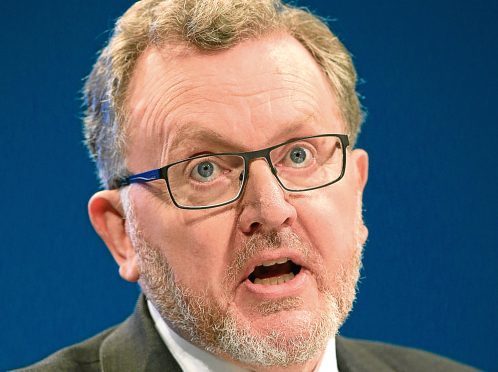Like all of us in the first intake of MSPs elected to the new Scottish Parliament in 1999, I was delighted and slightly daunted.
There was a real sense of anticipation not just inside parliament but right across Scotland. Expectations – rightly – were high.
Twenty years on, I am just as firm a believer in the parliament and its power to improve the lives of the people of Scotland.
But for me, its huge potential has gone unfulfilled in recent years.
That’s not the fault of Holyrood as an institution. Rather, it is down to the Scottish governments that have held the levers of devolved power.
Successive administrations have failed to live up to the founding idea of a parliament with the tools and imagination to develop distinctive Scottish policy solutions to Scottish problems within the UK.
Instead, for more than a decade, our parliament and politics have been dominated by a narrow constitutional agenda that a majority of Scots have never supported.
Issues like education, justice, transport, health – the things we all care about and that Holyrood was created to address – have played a very quiet second fiddle to an endless debate about independence.
That is a great disappointment.
It is particularly frustrating because Holyrood has gained substantial new powers down the years, greatly increasing its scope to act.
As a UK Government minister I’m pleased to have played a role in delivering extra powers following the Calman Commission and, more recently, the Smith Commission, the cross party agreement on further devolution which came after independence referendum in 2014.
Holyrood has become one of the most powerful devolved parliaments in the world and I’m heartened that control over much of income tax, for example, has already begun to change the way our MSPs do politics.
Ministers must now account for how they raise money, not just how they spend it, and that has to be good news for voters.
Looking ahead, I’m hopeful that Holyrood’s wide-ranging new welfare powers will not only be used creatively and effectively but that they will end the sterile Westminster ‘blame game’ that occupies too much time for too many MSPs.
There are other things that Holyrood can and must do better.
The committees have not always held Scottish Government ministers to account as firmly as they should, for example, or scrutinised legislation as keenly as they might.
But two decades on from taking my seat in the old Kirk General Assembly building, I remain as positive as I was about the parliament, its role in our national life and the great things it is capable of achieving.
And I’m incredibly proud that Oliver, my son, who attended the opening ceremony as a little boy, now sits at Holyrood as an MSP himself.
It is great to see a new generation of MSPs just as committed to delivering for the people they serve as the Class of 99.
